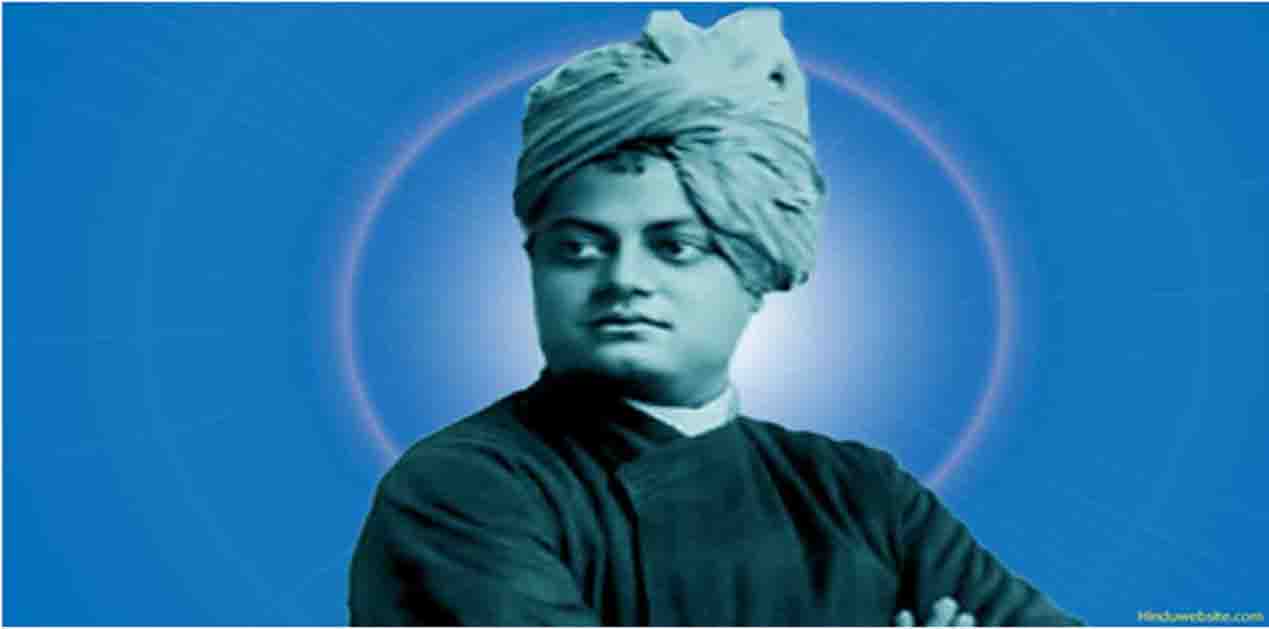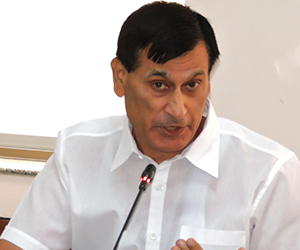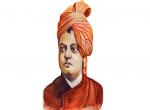Swami Vivekananda was a monk who travelled extensively in the most interior parts of India, which inevitably shaped his conscience about the uniqueness of Indian culture, spirituality and civilisation. He could see the greatness of India even at the most despicable times of poverty and famine that the country was confronted with and when Indians had lost faith in themselves. In the world view too, India was at the nadir of human civilisation. At this critical juncture, Swamiji’s rendition in Chicago on ‘Hinduism’ in 1893 not only raised the stature of India, but also acquainted the world with her intrinsic virtues.
India is today on the rise and beckons for strong leadership. But leaders are not made overnight nor can leadership be passed through hereditary lineage. Leaders are to be groomed with highest values, knowledge, awareness of the society and strong sense of purpose. Vivekananda’s teachings imbue the inexorable truth of life and helps jettison the many illusions of modern world. His omniscience came to fore with the foundation of Vedanta Society in New York in 1894 that continues to propagate his philosophies and techniques on yoga. Its teachings serve as a beacon of Indian culture and spirituality for the seekers world over, which is indeed a matter of pride for the nation. Swamiji’s preachments fill the void of Para Vidya (wholesome learning) in today’s youth and promises to enlighten them with values that are intensely needed in future leaders of India. His wisdom was so deep and wide that it would not be feasible to even summarise it in a humble article such as this. Therefore, a few have been recalled here for our youth to take note.
Swamiji expected the youth to rise to the expectations of their families and country, both intellectually and spiritually. He envisioned the youth to exude moral and physical courage and respond to the nation’s call whenever the country asked of them. His exhorted for serving the elders, week and orphans as a matter of duty and conform to the highest values of Indian civilisation. Comradeship, cohesiveness, worshipping the Matrubhumi and possessing fighting spirit in defence of Bharat Rashtra, were some of the mantras of Swami Vivekananda which the Indian youth need to imbibe. He exalted the role of Dhyan and Sadhna that helps sieve greed when indulged in material world. In the absence of right counsel and education, isolation, depression and sedentary lifestyle have become some of the common ails of our society. Thus, Swamiji urges the youth to harness their goals with vivacity.
India’s youth today have immense opportunities to learn and play a decisive role in nation building. But whilst doing so, one must not lose sight of the Swami’s calling for maintaining dignity, love and compassion. Manifestations of Swamiji’s visions can be seen in our present leadership and in the Government’s initiatives such as Swachh Bharat Abhiyaan, Make in India etc. As a result, the world has started to acknowledge India’s arrival as an economic, intellectual, cultural and spiritual power.
Swamiji spoke: “Take up an idea. Make that one idea your life—think of it, learn of it, live in that idea, let the brain, muscles, nerves, every part of your body, be full of that idea, and just leave every other idea alone. This is the way to success.”
India is one of the few remnants of civilisational states and prides itself as a cradle of many prominent religions as well as refuge for those who suffered religious expulsion by their tormentors back home. But ignorance of Indian values led to the spawning of vices and chipped off some of the civilisational glue. These values need to be rekindled by visiting the teachings of Vivekananda. If pursued with vigour and sagacity, India could wipe out the divisive scourge of caste, religion, region, tribe and superstitions in our society.
Swamiji also encouraged education of girls and emancipation of women in the society. He wanted women to be strong and decisive and competent like men. He considered women as embodiment of purity that synthesis the revered roles of a mother, daughter, sister and a wife. This epitomises the similitude of our nation as Bharat Mata. Therefore, there is a need for determined effort to educate the women and empower them so that they shape their own destiny are able to compete with the men on equal footing. Indian history is replete with intellectual genius, achievers and heroics of women such as Rani Jhansi, Kalpana Chawla, Amrita Devi, Kunjarani Devi etc. The Government’s clarion call of Beti Parhao Beti Bachao, has propelled the society and gained an irreversible momentum. Today Indian women are flying civil airlines and fighter aircraft, heading national banks, winning Olympic medals for the country and leading gram panchayats & ministries.
A peek into Swami Vivekananda’s exalted values can be obtained from his books Karma Yoga (1896), Raja Yoga (1896), Vedanta Philosophy: An Address before the Graduate Philosophical Society (first published 1896), Lectures from Colombo to Almora (1897) and Vedanta Philosophy: Lectures on Jnana Yoga (1902). In addition, a score of books published posthumously have the potential to emancipate the society and spur individuals to succeed and stimulate the creation of a great Bharat Varsh. Vivekananda International Foundation too strives to abide by the values of Swami Vivekananda by seeking harmony in diversity.
(Views expressed are of the author and do not necessarily reflect the views of the VIF)











Post new comment